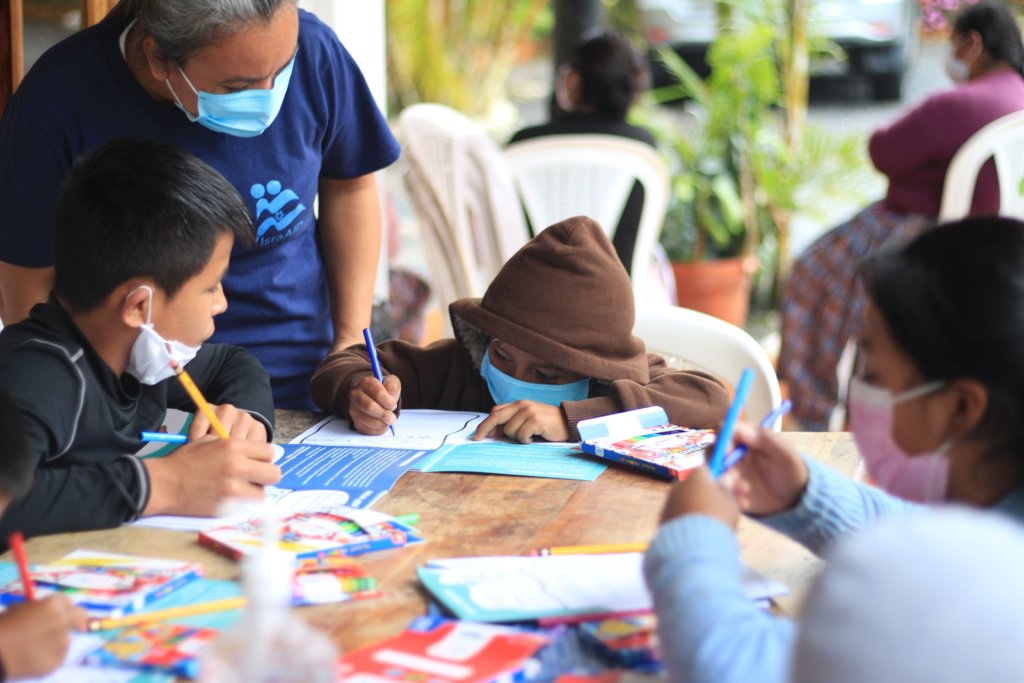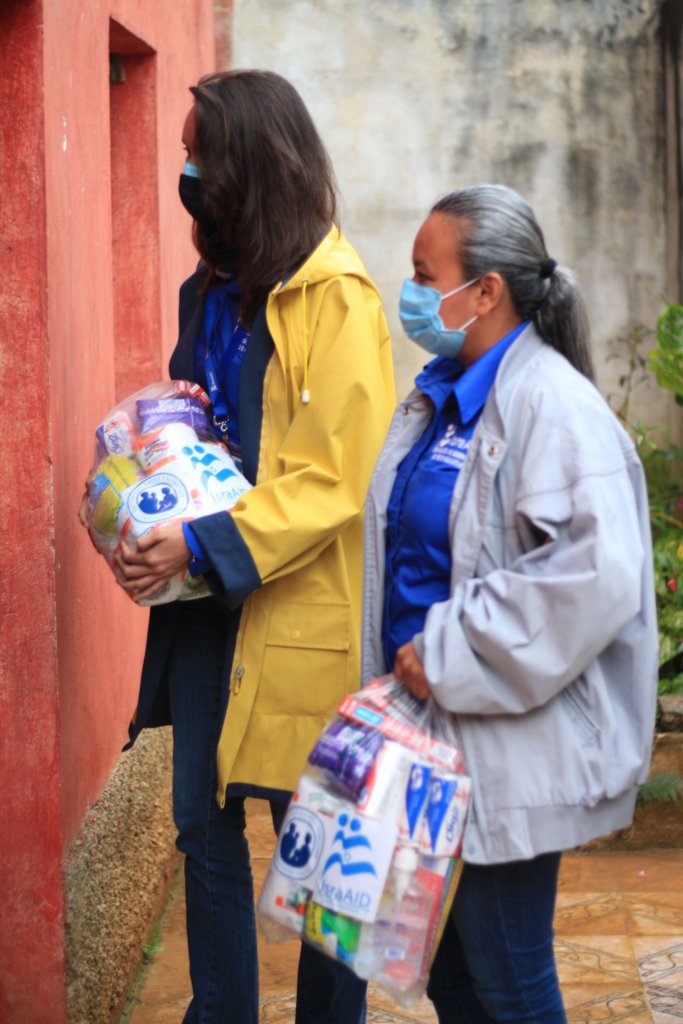By IsraAID Staff | IsraAID Guatemala
Guatemala Country Director Jaime Rhemrev lead IsraAID’s emergency response mission in Alta Verapaz, among the areas impacted by Storm Eta and Hurricane Iota in November. Below is an update from during the response.
It’s now been two weeks since we launched our emergency response mission in Alta Verapaz, Guatemala. This is one of the regions most severely impacted by Storm Eta and Hurricane Iota, which brought with them torrential rains that lasted more than a week. Humanitarian aid efforts have been extremely difficult due to damaged and impassable roads caused by flooding and landslides — not to mention the ongoing COVID-19 pandemic which complicates it all.
Over 500,000 Guatemalans have been affected across the country, including tens of thousands who have been evacuated to temporary shelters. In these spaces, it’s extremely difficult to curb the spread of Coronavirus, especially due to the rudimentary sanitation and hygiene resources available to the families living in these churches, schools, and community centers.
Even before these storms hit the area, the communities in Alta Verapaz were facing immense challenges and lacked resources to address them. For example, across the entire department, there are only 8 psychologists and not a single psychiatrist. 50% of Guatemalan children are malnourished — with these numbers expected to rise significantly in the coming months due to the immense crop damage caused by the storms. Access to safe water is extremely tenuous, as many of the rainwater harvesting systems utilized by the community (70% of whom live in rural areas, and are therefore less likely to be connected to water infrastructure) were severely ravaged by the storm. The large bodies of stagnant water created by the flooding bring with them high risk of vector-borne diseases such as malaria, but more than 80 of the health centers across Alta Verapaz were either damaged or entirely destroyed.
As an organization, IsraAID’s approach is to always go into any emergency response with our Disaster Risk Reduction “goggles” on. This means that we are always thinking ahead toward the potential for the next crisis, for the next hurricane, the next earthquake. So, when we rebuild the rainwater harvesting device, or the health center’s roof, or provide training for local social workers to administer Psychological First Aid, the main question is: how can we ensure that communities are better equipped to respond next time this happens?
In light of climate change, and the extremely high-risk factors facing Guatemala (such as many active volcanoes), it’s essential that we always take Disaster Risk Reduction into account.
Over the last weeks, I’ve seen immense awareness among the local communities here of this concept. 94% of Alta Verapaz’ population are indigenous, with their own unique language and culture. These groups have unfortunately faced decades of discrimination, with limited services available. However, what we’ve learned while being here is the natural propensity for Disaster Risk Reduction efforts that this community holds.
As we surveyed one community that had been buried by a landslide, the community members were already reflecting on what happened. They kept repeating that they “did not take care of nature.” They were asking themselves and each other what they could have done better. They were thinking forward about what needed to happen.
This is the first step of Disaster Risk Reduction: reflecting and understanding what went wrong, and what can be done to head off future crises by preparing, making plans, sharing information, and learning from one another.
But this can only be done when communities are committed to the process. Here, we don’t foresee that being an issue. We are excited to launch our partnership with these communities.
This type of reflection, of forward thought, of strategic thinking not only about the present needs, but also about how to truly put the future first is exactly why we’re here, and why we’ll stay here, helping to cultivate a culture of emergency preparedness, aiming to mitigate any future events and stymie the potential harm they may cause.
With your support, we were able to prioritize the future. Thank you.
Links:
Project reports on GlobalGiving are posted directly to globalgiving.org by Project Leaders as they are completed, generally every 3-4 months. To protect the integrity of these documents, GlobalGiving does not alter them; therefore you may find some language or formatting issues.
If you donate to this project or have donated to this project, you can receive an email when this project posts a report. You can also subscribe for reports without donating.
Support this important cause by creating a personalized fundraising page.
Start a Fundraiser
